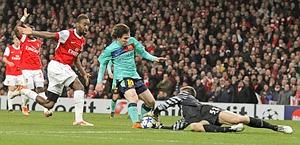The members of the all male Italian team at the 1932 Los Angeles Olympic Games were affectionately called 'Mussolini's boys' in the press. The athletes represented a new, more powerful, and virile Italy. Four years later in Berlin it was the successful Italian women athletes who were praised in the press for being the exponents of 'Latin athleticism'. What does this mean about women and sport in Fascist Italy and about the construction of a new athletic femininity and masculinity in this period? The debates that took place about the sports suitable for Italian women render visible the constant process of defining femininity. The construction of masculine athleticism in Fascist Italy was less problematic since modern masculinity was already tied to sport, however it too was not a fixed identity and was particularly influenced at this time by the growing militarism and the Fascist idea of the 'new man'. Sport provides an important focus for the examination of gender issues, because of its public and visible dimension. Moreover, because it provides an arena for easy comparison with other nations, sport was thus a setting for an attempt by the regime to define 'Italian' or 'Latin' characteristics. The figure of the athletic new Italian was emblematic of Fascism itself; fluid, adaptable, ambiguous, and dynamic; faithful, devoted to the Homeland, and strong, and in the case of women, graceful as well.
The Italian team at the Olympic Games in Los Angeles in 1932 was affectionately referred to by the international press as 'Mussolini's Boys'. (1) This name reflected the widespread approval that Fascist Italy and Mussolini enjoyed at the time, as well as the all-male composition of the team. By the following Olympics much had changed to render this name inappropriate. In 1936 Italy's international position was starkly different; having recently invaded Ethiopia, Italy was facing sanctions from the League of Nations and was moving politically closer to Nazi Germany. (2) In Berlin, Italy presented itself for the first time as an empire, and the Italian press defiantly claimed that the Italian team was competing under a flag of war. Moreover, in Berlin the Italian athletes who were more successful in the main stadium were not 'Mussolini's boys' but his 'girls'. (3) The reception and promotion of these women Olympians and other exemplary sporting figures, notably the accademiste, the students of the Fascist Female Physical Education Academy, reveals the problematic and ongoing process of gender construction in Fascist Italy. Most of the scholarship about sporting women in this period tends to either look at them in isolation from men or as an aside, and thus does not appreciate fully the complexities of the construction of 'Latin athleticism'. (4) While historians have acknowledged the ambiguous place of women in general as well as women athletes in Fascist Italy, they have not adequately teased out the gendered sporting norms for women athletes and for the prominent figure of the donna sportiva. (5) This paper will explore the intrinsic tension in the construction of the athletic woman at a time when virility and militarism, both apparently in contradiction to normative femininity, underscored the figure of the athlete.








